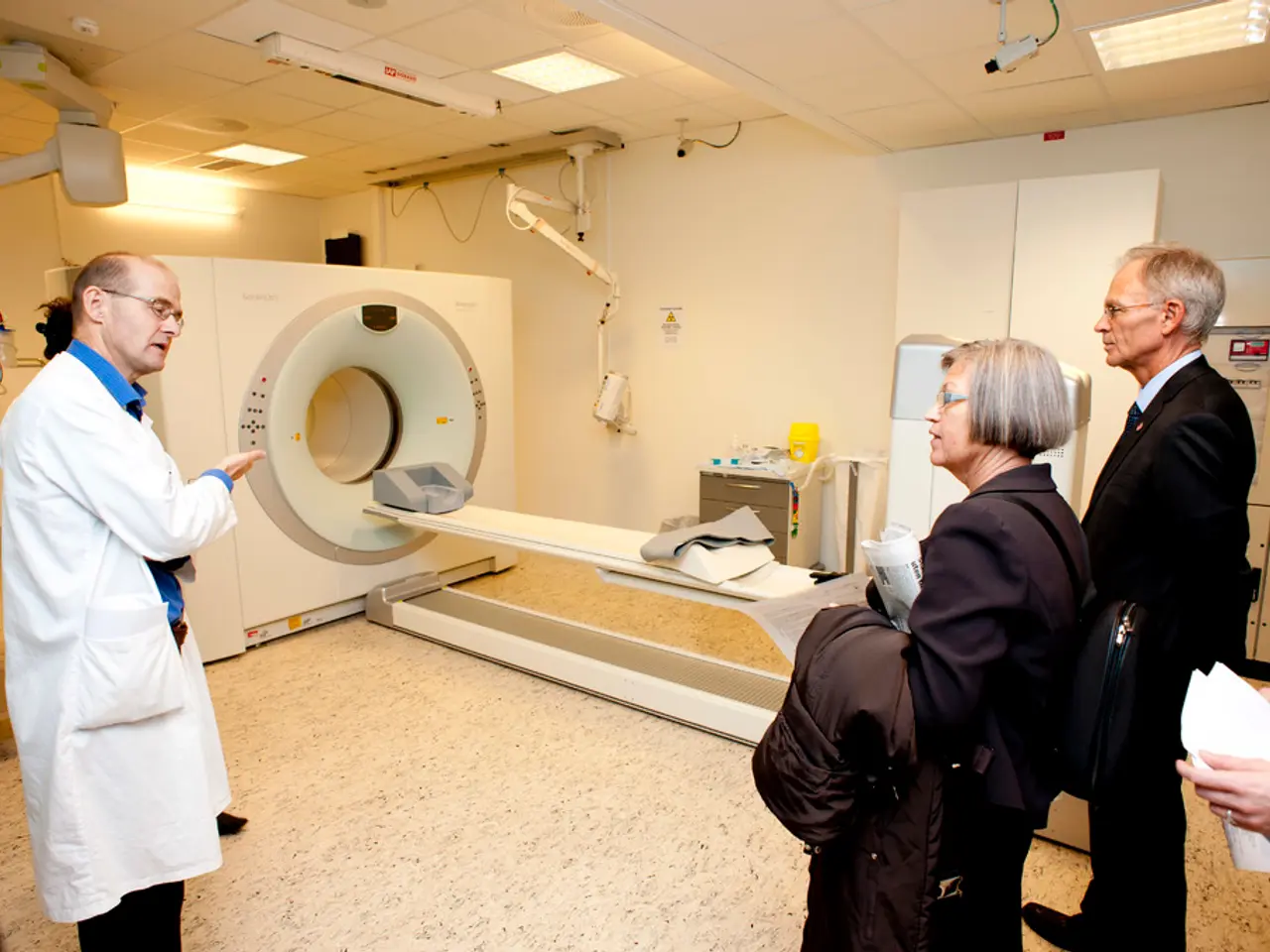Avoid Relying on Chance for Your Well-being
In the realm of maintaining good health, regular health screenings play a crucial role, especially as one ages and considers their family history of cancer. This article provides a general guide to recommended health screenings for adults, with a focus on colorectal cancer as a common example relevant to family history.
**General Adult Screening Recommendations**
Colorectal cancer screenings are a significant aspect of adult health checks. For those with an average risk, screenings should begin at age 45 for most adults. However, if there is a family history of cancer or polyps, screenings may need to start at age 40, or 10 years before the age of the youngest case in the immediate family, whichever is earlier. For individuals with genetic syndromes such as Lynch Syndrome or Familial Adenomatous Polyposis (FAP), colonoscopies may be necessary from the early 20s or 2–5 years younger than the youngest affected family member, with repeat examinations every 1–2 years. Those with a personal history of cancer, polyps, or inflammatory bowel disease (IBD) should consult their doctor about starting screenings before age 45.
Other cancer screenings, such as breast and cervical cancer, also play a vital role in early detection. Mammograms for breast cancer generally start at age 40–50 for average-risk women, but earlier screenings may be recommended if there is a family history. Pap smears (and HPV testing) for cervical cancer start at age 21–25 and continue per guidelines. Prostate cancer screenings (PSA test) typically start at age 50 for average-risk men, but earlier screenings may be necessary for those with a family history.
**Non-Cancer Screenings**
Regular health checks also include non-cancer screenings, such as blood pressure, cholesterol, diabetes, and vaccinations. Blood pressure checks should be conducted every 1–2 years for all adults, while cholesterol screenings should be performed every 4–6 years for average-risk adults starting at age 20, with more frequent screenings if risk factors are present. Diabetes screenings are recommended for adults 35 years and older, or earlier if overweight/obese or with risk factors. Vaccinations should follow the CDC adult immunization schedule by age, including influenza, COVID-19, tetanus, and others.
**Additional Considerations**
It is essential to remember that if you have symptoms, do not wait for recommended age; consult your doctor immediately. Black/African American individuals should start colorectal cancer screening at age 45. For those with a personal or family history of other cancers, discuss screening plans with your healthcare provider, as earlier or more frequent screenings may be needed.
**Summary Table**
| Screening Type | Average Risk Start Age | Family History Start Age/Notes | |-----------------------|-----------------------|-----------------------------------------------| | Colorectal Cancer | 45 | 40 or 10 years before youngest case in family | | Breast Cancer | 40–50 | Earlier (e.g., 30 or 10 years before) | | Cervical Cancer | 21–25 | Follow age guideline; genetics may change risk| | Prostate Cancer | 50 | Earlier if family history | | Blood Pressure | 18+ | All adults | | Cholesterol | 20+ | More frequent if risk factors | | Diabetes | 35+ | Earlier if risk factors |
Always discuss your individual risk factors and family history with your healthcare provider to determine the best screening schedule for you. For those seeking a more personalized approach, programmes like the Wilmot Cancer Institute's Hereditary Cancer Screening and Risk Reduction Program can help create a tailored cancer screening plan based on your genetics.
[1] American Cancer Society (2022). Colorectal Cancer Screening Guidelines. [Online] Available at:
- In addition to colorectal cancer screenings, non-cancer screenings such as blood pressure, cholesterol, diabetes, and vaccinations are essential components of maintaining adult health.
- For breast cancer, mammograms are typically recommended to start between ages 40 and 50 for average-risk women, but earlier screenings may be necessary if there is a family history.
- Cervical cancer screenings, which include Pap smears and HPV testing, should start at ages 21-25 and continue according to guidelines, with earlier screenings or different screenings possible due to genetics or family history.
- Regular fitness and exercise, skin care, nutrition, mental health, men's health, and women's health should also be prioritized for a well-rounded approach to health and wellness.
- For those with a personal or family history of any type of cancer, it's crucial to discuss screening plans with a healthcare provider, as earlier or more frequent screenings may be necessary.




